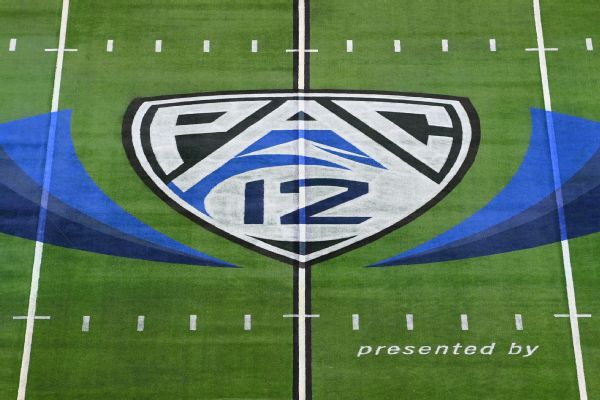
The leadership at Washington State and Oregon State believe they will have information within the next month to evaluate whether it makes sense to rebuild under the Pac-12 brand while also proceeding with a legal case to take control of the future direction of the conference.
“I don’t think it’s going to take us months to get the full picture,” Washington State president Kirk Schulz said Thursday. “I’m optimistic that in the next 30 days or so we’re going to have a pretty decent idea of a lot of this and that’ll help our decision-making and our legal strategy.”
The presidents and athletic directors of both schools held a joint news conference two days before No. 14 Oregon State and No. 21 Washington State meet on the football field in a top-25 showdown. While they’ll be competitors Saturday, the two schools are unified in how they’re moving forward after being left out in the most recent round of conference realignment.
Washington State athletic director Pat Chun said the Cougars’ band will perform the Oregon State fight song before kickoff Saturday.
Except for a few hours this weekend, they are partners in solving the puzzle of what comes next.
“Just to be clear that the partnership has been super strong, but it’s on pause come kickoff,” Oregon State athletic director Scott Barnes said.
Neither school feels secure about its future. Most important is the pending litigation the schools have brought seeking to make them the only decision-makers regarding the conference with the other 10 schools departing for new leagues next year.
The two schools want control of the remaining Pac-12 assets and intellectual property while preserving its brand. They say they fear the outgoing schools will try to dissolve the conference and divvy up its assets on the way out the door.
Washington State and Oregon State won a temporary restraining order early last week to prevent departing Pac-12 members from meeting until it can be determined who has the right to chart the future of the disintegrating conference. They are waiting for a hearing to be scheduled on a request for a preliminary injunction.
In the meantime, the leaders of the two schools say it’s vital to get a clear picture of where the conference stands right now — with its revenues, assets and perhaps most important its liabilities — to determine whether it’s viable for the schools to move forward as a Pac-2 and start the process of rebuilding under the conference umbrella.
“The reality is the legal action that was just talked about really impacts our ability to make informed decisions,” Chun said. “And we owe it to ourselves, to our student-athletes, we owe it to all of our constituents to make as informed decisions as we can and getting to this asset liability piece has always been critical in terms of making those decisions.”
While the schools wait on that information, they are pressing forward.
“The fact that we are waiting for some additional information does not mean that we haven’t been focused every day on what that scheduling scenario [for next year] might look like and engaged in the proper conversations to make sure that when we do have that information we’re pressing go,” Barnes said.
“We do know based on our modeling and our conversations with the content experts, that we can put schedules together as late as late fall. We don’t want to wait that long. … But I would say that as it relates to scheduling, we are confident we can put a schedule together for all sports in a timely fashion that meets our needs for 2024-25.”
The Associated Press and ESPN’s Kyle Bonagura contributed to this report.

